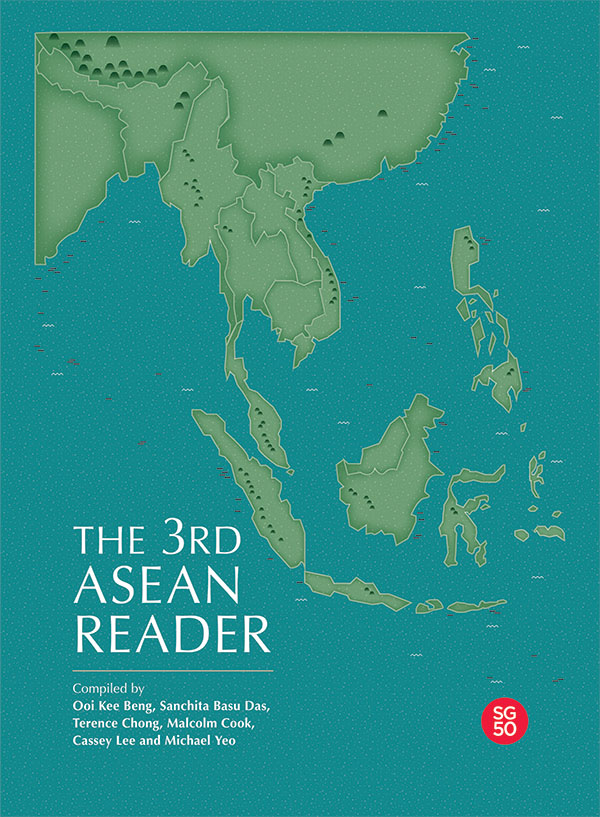Book contents
- Frontmatter
- Contents
- Preface
- Forewords to the First and Second ASEAN Reader: ASEAN: Conception and Evolution
- Forewords to the First and Second ASEAN Reader: ASEAN: The Way Ahead
- Forewords to the First and Second ASEAN Reader: New Challenges for ASEAN
- SECTION I ASEAN: THE LONG VIEW
- SECTION II COUNTRY ANALYSES
- SECTION III COMPARATIVE ANALYSES OF THE REGION
- Southeast Asian Societies
- 12 Civil Society in Southeast Asia
- 13 Multicultural Realities and Membership: States, Migrations and Citizenship in Asia
- 14 Education in Southeast Asia: Investments, Achievements, and Returns
- 15 Asian Pentecostalism: Renewals, Megachurches, and Social Engagement
- 16 The Rise of Middle Classes in Southeast Asia
- The Southeast Asian Economy
- Southeast Asian Politics
- SECTION IV INTERNATIONAL DEVELOPMENTS
- SECTION V INSTITUTIONS OF ASEAN
- SECTION VI ASSESSING ASEAN'S INTERNAL POLICIES
- ASEAN Political Security Community
- ASEAN Economic Community
- ASEAN Socio-Cultural Community
- SECTION VII ASSESSING ASEAN'S EXTERNAL INITIATIVES
- ASEAN Processes
- ASEAN's Major Power Relations
- SECTION VIII SOUTHEAST ASIA: PERIPHERAL NO MORE
- Bibliography
- The Contributors
- The Compilers
15 - Asian Pentecostalism: Renewals, Megachurches, and Social Engagement
from Southeast Asian Societies
Published online by Cambridge University Press: 22 June 2017
- Frontmatter
- Contents
- Preface
- Forewords to the First and Second ASEAN Reader: ASEAN: Conception and Evolution
- Forewords to the First and Second ASEAN Reader: ASEAN: The Way Ahead
- Forewords to the First and Second ASEAN Reader: New Challenges for ASEAN
- SECTION I ASEAN: THE LONG VIEW
- SECTION II COUNTRY ANALYSES
- SECTION III COMPARATIVE ANALYSES OF THE REGION
- Southeast Asian Societies
- 12 Civil Society in Southeast Asia
- 13 Multicultural Realities and Membership: States, Migrations and Citizenship in Asia
- 14 Education in Southeast Asia: Investments, Achievements, and Returns
- 15 Asian Pentecostalism: Renewals, Megachurches, and Social Engagement
- 16 The Rise of Middle Classes in Southeast Asia
- The Southeast Asian Economy
- Southeast Asian Politics
- SECTION IV INTERNATIONAL DEVELOPMENTS
- SECTION V INSTITUTIONS OF ASEAN
- SECTION VI ASSESSING ASEAN'S INTERNAL POLICIES
- ASEAN Political Security Community
- ASEAN Economic Community
- ASEAN Socio-Cultural Community
- SECTION VII ASSESSING ASEAN'S EXTERNAL INITIATIVES
- ASEAN Processes
- ASEAN's Major Power Relations
- SECTION VIII SOUTHEAST ASIA: PERIPHERAL NO MORE
- Bibliography
- The Contributors
- The Compilers
Summary
We argue that Asian Pentecostalism is characterized by enigmatic attributes in three dimensions that distinguish it from Western Pentecostalism on the one hand and Pentecostalism in the Global South on the other hand. Firstly, Asian Pentecostalism is indigenizing and transnationalizing and this simultaneous movement is spearheaded by prophetic preachers and the crafting of contextual theologies grappling with specific social and cultural conditions. Secondly, organizationally, Asian Pentecostalism tends towards the building of mega-churches and, at the same time, promotes close discipling and disciplining in small groups. Thirdly, while socially and oftentimes politically conservative, Asian Pentecostalism invents new modes of social engagements with developmental states and democratizing public spheres that may have surprisingly progressive outcomes.
A definition of Pentecostalism and Asian Pentecostalism is warranted before we proceed. In taking the conventional definition of ‘Pentecostalism’ to be an emphasis on the religious-spiritual experience, the baptism of the Holy Spirit and the speaking of tongues or glossolalia (see Anderson 2004), we are cognisant of the fact that any attempt at defining an evolving religious movement is going to be fraught with theoretical and political hazards. Indeed, the difficulty is historiographical. It has been shown that the early narrative of Pentecostalism has been infused with the ‘ritualisation of Pentecostal history’ that suffers from the erasure of ‘native missionaries’, ‘white racial bias’, as well as a ‘persistent gender bias’ (Wacker 1986: 95).
By the 1980s and early 1990s, the rapid growth of Pentecostalism had become visible in Indonesia, Malaysia, Singapore, Taiwan and South Korea. Against the backdrop of economic growth in much of Asia, the rapid expansion of these Pentecostal congregations, noticeable for their younger upwardly mobile well-educated Chinese members, led to the breakaway of independent churches, from which came the rise of the ‘mega-church’.
The growth of the mega-church in Asia has been one of the most important developments in Pentecostalism in the past two decades. While the worship styles, organizational strategies and use of technologies by mega-churches in the US have shaped the general character of the mega-church, its non-denominational nature has allowed indigenous features to define those found in Asia. The global spread of mega-churches not only attests to the transnationalizing and indigenizing effects of Pentecostalism but also helps us further refine secularization theory to account for religiosity in modernizing societies outside Europe.
- Type
- Chapter
- Information
- The 3rd ASEAN Reader , pp. 79 - 83Publisher: ISEAS–Yusof Ishak InstitutePrint publication year: 2015

